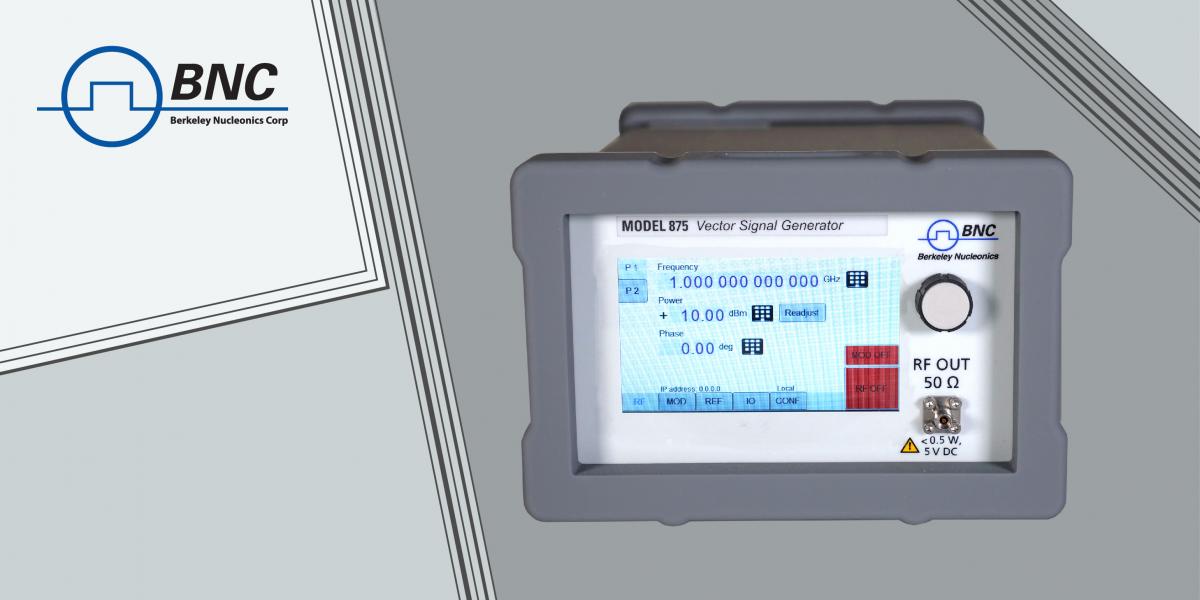March 15, 2023 - Exploring the Versatile Applications & Functions of Vector Signal Generators
A Vector Signal Generator (VSG) is an essential tool for the generation of complex, modulated signals in the RF and microwave frequency range. VSGs play a critical role in numerous applications, industries, and functions that require the testing, verification, and calibration of various systems, devices, and components. VSGs are designed to generate highly accurate, precise, and stable signals with a wide range of modulation types, frequencies, and power levels. They can produce a variety of signals, including analog, digital, and mixed-signal, with different modulation schemes such as AM, FM, PM, BPSK, QPSK, and more. Moreover, they can generate complex signals such as multi-carrier, multi-tone, and wideband signals.
One of the most prominent applications of VSGs is in the field of telecommunications, where they are used to test and verify the performance of various communication systems and devices, including cellular networks, satellite communications, and radio broadcasting. In telecommunications, VSGs can simulate different communication scenarios and environments, such as fading, multipath, interference, and noise, to assess the quality, reliability, and efficiency of the communication system.

VSGs are also widely used in the aerospace and defense industries to test and calibrate various electronic systems and devices, such as radars, avionics, and navigation systems. In these applications, VSGs can generate highly precise and accurate signals that replicate the signals received in real-world scenarios, such as GPS signals, radar pulses, and communication signals.
The automotive industry is another area where VSGs find significant use. VSGs are used to simulate and test the performance of various wireless communication systems used in cars, such as Bluetooth, Wi-Fi, and cellular communication systems. Moreover, VSGs can also generate signals that mimic the signals from various sensors used in cars, such as radar, lidar, and camera sensors, to test the performance and reliability of autonomous driving systems.
In the field of research and development, VSGs are used to design, develop, and test various RF and microwave devices and components, such as amplifiers, filters, and antennas. VSGs can generate signals with a wide range of frequencies, modulation types, and power levels, which allows researchers to test the devices under different conditions and scenarios.
In the manufacturing industry, VSGs are used to calibrate and test various electronic devices and systems. VSGs can generate signals that mimic the real-world signals that the devices are expected to receive, which allows the manufacturers to test the performance and quality of the devices before they are released to the market.

One of the most promising new Vector Signal Generator units on the market is the Model 875 Vector Signal Generator by Berkeley Nucleonics. The 875 VSG is a high-performance, fully synthesized signal generator that offers industry-leading phase noise and amplitude accuracy, making it an ideal tool for high-precision testing and verification of RF and microwave devices and systems. It can generate signals with frequencies up to 40 GHz, making it suitable for a wide range of applications in telecommunications, aerospace, defense, and research and development. With its high performance and advanced features, the Model 875 VSG is quickly gaining popularity among engineers and technicians who require a reliable, accurate, and versatile Vector Signal Generator.
A Vector Signal Generator is a versatile tool that finds applications in various industries and functions, including telecommunications, aerospace and defense, automotive, research and development, and manufacturing. VSGs are critical for testing, verifying, and calibrating various electronic systems, devices, and components, and they play a vital role in ensuring the reliability, efficiency, and quality of these systems. With the increasing demand for high-quality, reliable, and efficient electronic devices and systems, the role of VSGs is expected to grow further in the coming years.
